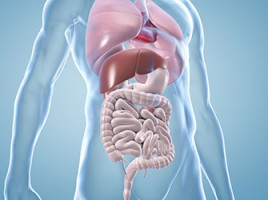
The microscopic organisms that live in our gut do more than help us digest food.
A new study in rats bolsters a growing body of evidence that the complex mix of microorganisms found in the gut, known as gut microbiota, could influence a person's likelihood of developing colon cancer.
Susheel Busi will present this research during the Cancer and Immunology Symposium as part of The Allied Genetics Conference.
For more on the microbiome, you can read our summary article here.
Previous studies in humans have shown that cancer is associated with changes in gut microbiota.
In the new study, researchers from the University of Missouri in Columbia used rats to further explore the possible relationship between cancer and bacteria in the gut.
They implanted embryos from a strain of rats genetically engineered to develop colon cancer into the wombs of three other strains of rats, each with distinct gut microbiota: F344/NHsd (F344), LEW/SsNHsd (LEW), and Crl:SD (SD).
By 1.5 months, the microbiota of the pups, which typically develop
The researchers looked for tumours when the pups had reached 6 months of age and found that rats with the LEW microbiota developed significantly fewer LEW strain gut microbiota did not develop colon tumours at all.
The researchers also found more tumours in the rats with the F344 gut microbiota that had higher levels of Peptococcaceae and Akkermansia muciniphila bacteria in their guts.
Overall, findings from this study provide new insight into the role of gut microbiota as a modulator and a predictor of cancer in this rat model.
Source: Allied Genetics Conferene